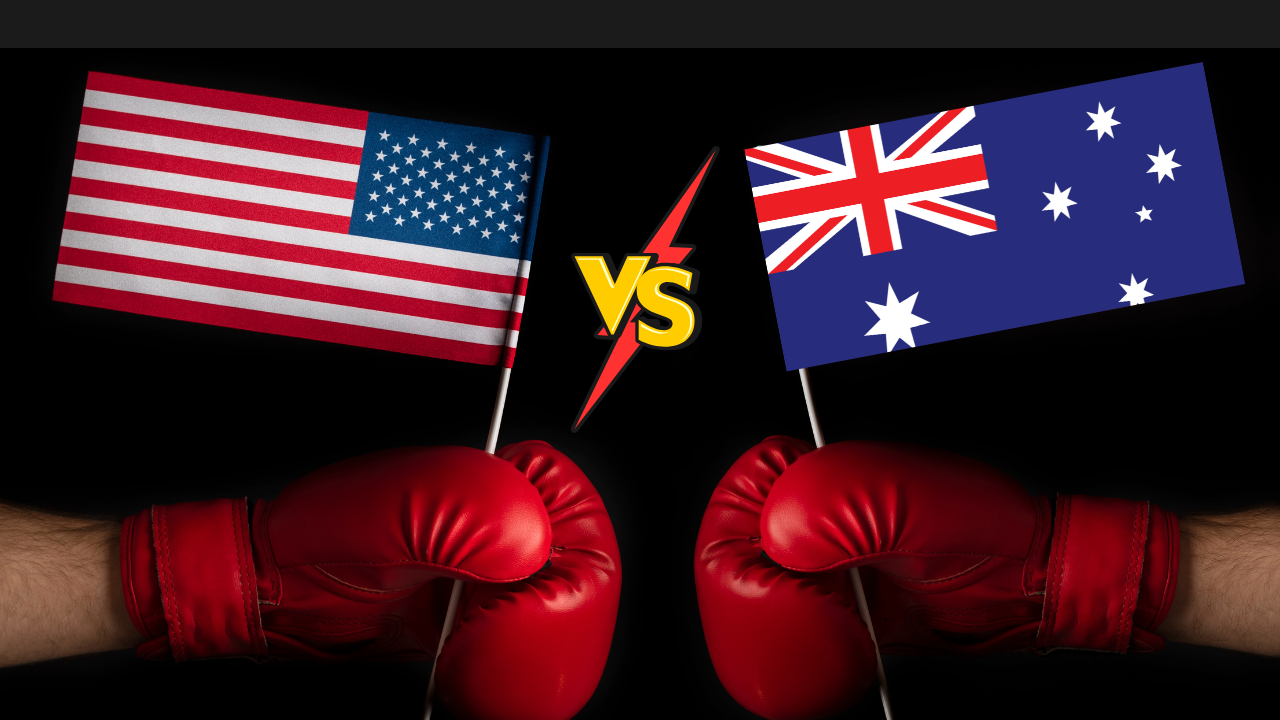USA vs. Australia: Which Study Destination Is Right for You? An Indian Student’s Guide
USA vs. Australia: Which Study Destination Is Right for You? An Indian Student’s Guide
Are you an Indian student dreaming of studying abroad? You’re not alone! The USA and Australia are two popular choices, each offering unique experiences. Let’s dive into a friendly comparison to help you decide which country might be the best fit for your educational journey.
1. Academic Landscape
1.1. University Rankings and Reputation
Both countries boast world-class universities, but they shine in different ways. The USA is home to Ivy League schools like Harvard and MIT, which often top global rankings. Australia, while newer to the international education scene, has quickly made a name for itself with universities like the University of Melbourne and Australian National University.
Fun fact: Did you know that 8 Australian universities are in the world’s top 100?
1.2. Course Variety and Specializations
The USA offers an incredibly wide range of courses and specializations. You’ll find everything from traditional subjects to niche fields like space law or underwater basket weaving (yes, that’s a real thing!). Australia, while having fewer universities, still offers a diverse range of courses, with a particular strength in fields like environmental sciences and marine biology.
1.3. Research Opportunities and Facilities
If research is your passion, both countries have got you covered. The USA is known for its cutting-edge research facilities and generous funding, especially in STEM fields. Australia, not to be outdone, offers unique research opportunities, particularly in areas like coral reef studies and astronomy.
2. Admission Process and Requirements
2.1. Application Deadlines and Procedures
The USA typically has earlier application deadlines, often a year in advance for fall intake. Australia’s process is generally more flexible, with multiple intake periods throughout the year. Both countries have online application systems, but the USA’s can be more complex with different requirements for each university.
2.2. Standardized Tests (SAT, ACT, IELTS, TOEFL)
For the USA, you’ll likely need to take the SAT or ACT, along with TOEFL or IELTS for English proficiency. Australia usually only requires IELTS or TOEFL. Some Australian universities might ask for additional subject-specific tests, but it’s less common than in the USA.
2.3. Visa Application and Documentation
The visa process for both countries can seem daunting, but don’t worry! The USA requires a F1 student visa, while Australia uses the Student Visa (Subclass 500). Both processes involve proving your intent to study and your ability to support yourself financially.
3. Cost of Education and Living
3.1. Tuition Fees Comparison
Generally, US universities tend to have higher tuition fees, especially private institutions. Australian universities often have more consistent pricing across the board. However, both countries offer scholarships and financial aid options for international students.
3.2. Accommodation Expenses
Living costs can vary widely in both countries depending on the city and lifestyle. Cities like New York or Sydney are notoriously expensive, while smaller towns or regional areas can be more budget-friendly. On-campus housing is more common in the USA, while many Australian students opt for off-campus accommodations.
3.3. Part-time Work Opportunities and Regulations
Both countries allow international students to work part-time during their studies. In Australia, you can work up to 40 hours per fortnight during term time and full-time during breaks. The USA allows on-campus work and, after the first year, the possibility of off-campus work related to your field of study.
4. Cultural Experience and Lifestyle
4.1. Diversity and Multiculturalism
Both countries are melting pots of cultures, but you’ll experience this differently in each. The USA is known for its diverse population and the concept of being a ‘nation of immigrants’. Australia, while also multicultural, has a unique blend of Western and Asian influences due to its geographic location.
4.2. Weather and Geographic Differences
Here’s where things get really different! The USA has incredibly diverse climates, from the snowy winters of New England to the year-round sunshine of California. Australia is known for its warm climate, beautiful beaches, and unique wildlife. Just remember, when it’s summer in India, it’s winter down under!
4.3. Social Life and Extracurricular Activities
Campus life in the USA often revolves around sports teams and Greek life (fraternities and sororities). Australian universities typically have a more relaxed vibe, with a focus on outdoor activities and socializing off-campus. Both offer plenty of clubs and societies to join.
5. Post-Graduation Prospects
5.1. Job Market and Career Opportunities
The USA, with its large economy, offers diverse job opportunities across many industries. Silicon Valley is a draw for tech enthusiasts, while New York beckons to finance whizzes. Australia’s job market is robust too, with particular strengths in sectors like mining, agriculture, and tourism.
5.2. Work Visa Policies
After graduation, the USA offers Optional Practical Training (OPT), allowing you to work for 1-3 years depending on your field of study. Australia provides a Temporary Graduate visa (subclass 485) that lets you work for 2-4 years after completing your degree.
5.3. Permanent Residency Options
Both countries have pathways to permanent residency for skilled graduates, but the process can be complex and subject to change. Australia’s point-based system is often considered more straightforward than the USA’s employment-based green card system.
6. Healthcare and Safety
6.1. Medical Insurance Requirements
Both countries require international students to have health insurance. In the USA, you’ll need to purchase a university-approved plan. Australia requires Overseas Student Health Cover (OSHC) for the duration of your stay.
6.2. Healthcare System Quality
The USA is known for its advanced medical facilities but navigating the healthcare system can be complex and expensive. Australia’s Medicare system is more straightforward, and the quality of care is generally high.
6.3. Campus and City Safety
Both countries are generally safe for international students. However, like anywhere, it’s important to be aware of your surroundings, especially in big cities. University campuses in both countries typically have their own security measures in place.
Summary
Choosing between the USA and Australia isn’t easy – both offer fantastic opportunities for Indian students. The USA might be your pick if you’re after a classic American college experience or eyeing top-ranked universities. Australia could be your dream destination if you’re drawn to a more laid-back lifestyle and unique natural environments. Remember, there’s no one-size-fits-all answer. The best choice depends on your personal goals, interests, and circumstances.
FAQs
- Which country offers more scholarships for Indian students?Both countries offer scholarships, but the USA generally has more options due to its larger number of universities and private funding sources.
- How does the quality of education compare between the USA and Australia?Both countries offer high-quality education. The USA is known for its research output and prestigious institutions, while Australia is recognized for its practical, industry-focused approach.
- What are the main cultural differences Indian students should be aware of?The USA tends to have a more individualistic culture, while Australia is more laid-back. Both are quite different from India in terms of social norms and communication styles.
- Which country has a more straightforward visa process?Australia’s visa process is generally considered more straightforward, but both countries have clear guidelines for student visas.
- How do living costs differ between major cities in the USA and Australia?Cities like New York or San Francisco in the USA tend to be more expensive than Australian cities like Sydney or Melbourne. However, costs can vary widely depending on lifestyle and specific location within each city.







